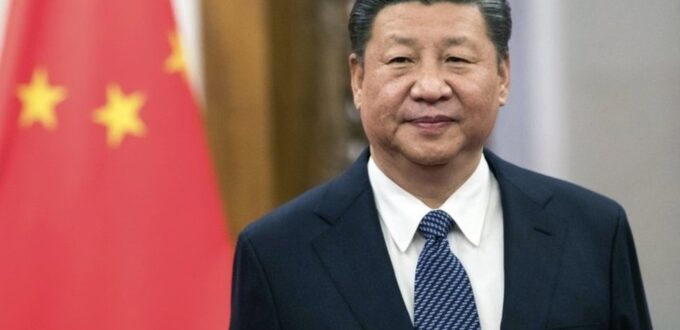Ahead of the result of the 20th National Congress meeting, the protest against Chinese President Xi Jinping showed how dissatisfaction has gripped the society and especially in the wake of its draconian zero-Covid policy.Just before the beginning of the once-in-five-year National Congress in Beijing, people protested against the country’s authoritarian system on October 13, The Geneva Daily reported.
Thousands of users of WeChat amplified anti-Xi narratives in a freewheeling manner after a youth near a ring road bridge in Beijing burnt a tire and hung two banners from the bridge written with a demand for the removal of “dictator and traitor Xi Jinping.”
The protesters called for an end to the lockdowns and said that they need to vote; “we don’t want to be slaves.”China’s zero-Covid policy has become one of the reasons for growing dissatisfaction in society. Earlier, in Shanghai, to achieve the zero-Covid policy goal, thousands of people were separated from their families and children after they tested positive for Covid. Delays in essential medical treatment and food supplies to affected families had become routine, according to The Geneva Daily.
According to The Geneva Daily, the Chinese government used its internet censor to silence dozens of bloggers, academicians, and activists, including Fang Bin, Chen Qiushi, professor Chen Zhaozhi, Chen Mei, and Cai Wei. They were cruelly silenced by the Chinese government after they posted stories, interviews, and personal sufferings of people due to Covid in Wuhan in April 2020.
China is already on high alert as the party congress, which occurs every five years had already started on Sunday. At the meeting, Xi is expected to coast to a third term as leader.
After the protest, on the very next day that is Friday, eight marked police cars were parked under and around the Sitong Bridge, where the protesters openly bashed China’s President and criticized their zero-Covid policy, and crowds of plainclothes officers in black sweatpants stood to watch on the street corners.
When reporters began taking photos of the bridge, four plainclothes officers immediately ran over and ordered them to delete the photos. They said taking photos there was prohibited because of “special circumstances.”The internet censoring also extended beyond search terms on social media with a connection to the incident, according to The New York Times.
Some WeChat users said their accounts were frozen after they shared images of the bridge or sent text messages about the episode. This prompted some people to flood the customer service community page of Tencent, WeChat’s parent company, on Weibo, begging that their accounts be returned. One desperate user wrote about feeling “deeply ashamed” and expressed regret about comments written about the incident in a message group with four people.
The Tencent customer service community page on Weibo has been removed. In addition, a song called Sitong Bridge,” a soft-rock tune by the band Graceless was removed from Chinese music apps. It also appeared to be removed from Apple Music for Chinese users, reported The New York Times.


No Comments Yet